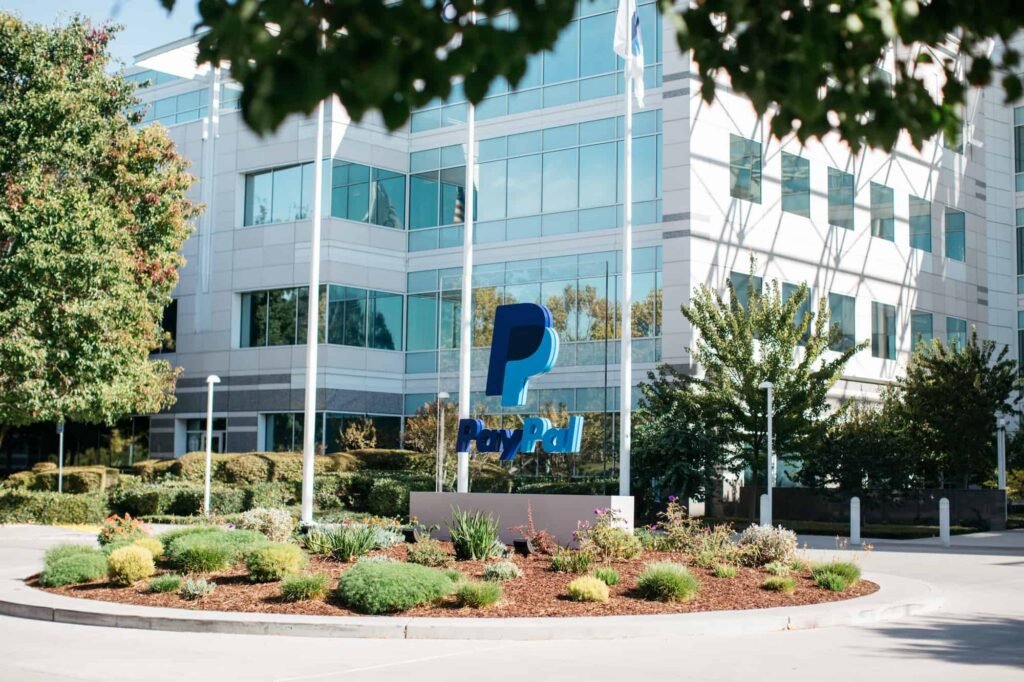PayPal (NASDAQ: PYPL), the Fintech company that launched its electronic payment system in 1999, continues to dominate digital transactions, and is now focused on what it claims is disrupting itself in a crowded and increasingly competitive financial technology ecosystem.
The platform handles peer-to-peer transfers via Venmo, online checkouts, invoicing for businesses, and cryptocurrency trading, all backed by 24/7 fraud monitoring and encryption. Yet, under CEO Alex Chriss, who took the helm in 2023 after leading Intuit’s small business division, PayPal is pivoting to address emerging challenges in a cashless economy.
Chriss views money management as inherently stressful for consumers and small businesses.
He said:
“There’s nothing more stressful than money, whether you’re a consumer or small business.”
This sentiment drives PayPal’s renewed focus on trust and security, which he sees as the company’s core assets built over two decades.
As the “granddaddy of fintech,” PayPal must now disrupt itself to stay relevant, Chriss argues, by shedding outdated decisions and fostering a culture attuned to future needs.
“I’m not holding on to decisions that we made a decade ago. I’m thinking about helping build a culture that allows us to do what’s right for customers while leaning into the future.”
This approach materialized in a new mission announced 18 months ago: to revolutionize commerce globally.
Chriss assembled a fresh senior leadership team, including Suzan Kereere as president of global markets, to execute it.
The result has been tangible growth, with net revenue climbing to $31.8 billion in 2024, up 10 percent year-over-year.
Internally, the shift emphasizes accountability and customer focus, yielding high employee alignment—90 percent report trust and transparency, per surveys.
Product updates reflect this customer-centric strategy.
PayPal Fastlane, a one-click checkout tool, tackles cart abandonment by recognizing returning shoppers and eliminating manual form entry, boosting merchant conversions.
Broader innovations target small businesses, which Chriss calls economic underdogs, hit hardest by cash flow issues during downturns.
He added:
“Having worked with small businesses for 20 years, they are the ones that are making our communities thrive.”
PayPal now uses anonymized user data to connect them with capital and new customers, moving beyond one-size-fits-all services to personalized options available across online and offline channels.
Emerging trends like AI and shifting consumer habits are central to Chriss’s vision.
Younger users are ditching credit cards for debit options, accelerating PayPal’s debit products.
AI-powered “smart wallets” will guide payment choices to maximize rewards and minimize anxiety over missed benefits.
Chriss explained:
“We’re leveraging AI… to help customers make the right choice at the right time for every purchase.”
Agentic e-commerce, where AI agents handle transactions, will proliferate, he predicts, alongside crypto integration and omnichannel buying.
A key upcoming launch is PayPal World this fall, a platform linking global payment systems and digital wallets for borderless transactions. This interoperability aims to cut friction and costs, enabling merchants to retain customers while offering personalized experiences.
Over the next five years, Chriss anticipates peak disruption from these forces.
He said:
“We don’t know exactly what the future is going to hold, but the opportunity to… remove costs and friction from the system… are opening up.”
PayPal’s internal momentum supports this: Employees, many of whom use the platform daily, provide meaningful feedback, from airport encounters to structured research.
For Chriss, leadership means rallying professional talent around a vision to navigate uncertainty. By prioritizing small businesses and user experience, PayPal positions itself to adapt and to enhance fintech solutions amid economic uncertainty.

